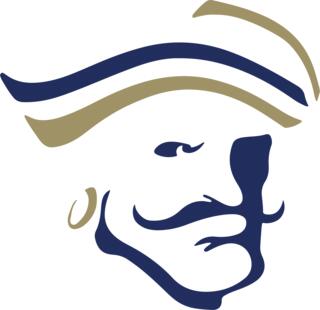Co-Curricular Assessment
Co-Curricular Assessment will be completed by those group on campus whose activities complement the General Education Outcomes at ICC.
These groups include some of the following areas:
-
Athletics
-
Student Activities and Organizations
-
Work-Study
-
Campus student resources
-
And many more
Those areas identified as needing to complete Co-Curricular Assessment will be notified at the start of the year and will follow then general outline for assessment as follows:
Co-Curricular Assessment
Identify Goals/Outcomes
General Education Outcomes (GEO) are approved by the Board of Trustees and each Co-Curricular activity will map themselves to at least three (3) GEOs. Mapping to more than three (3) is acceptable and highly encouraged.
The following are the current eight (8) GEOs at ICC:
-
Analysis and Oral Communication - Students will be able to communicate effectively and integrate from credible sources.
-
Mathematics and Science - Students will be able to process numeric, symbolic, and graphic information to predict phenomena in the natural world and apply appropriate problem-solving techniques.
-
Fine Arts and Aesthetics - Students will be able to identify expressive qualities and elements of fine arts.
-
Cultural Studies - Students will be able to articulate an understanding of tolerance of cultural diversity.
-
Health and Well-Being - Students will be able to articulate a connection between human behaviors and their impacts on well-being.
-
Human Heritage - Students will be able to demonstrate an understanding of the broad diversity of the human experience.
-
Social and Political Awareness - Students will be able to explain the impact of societal structures on their lives.
-
Business and Technology - Students will be able to explain concepts of financial systems and/or use current technology efficiently and responsibly.
Again, while mapping to all GEOs is not necessary, at least three (3) must be assessed each year.
Determine how and when to measure
Once the outcomes have been identified, define which activities will be used to measure the success of students in meeting those GEOs. Activities should be measured in more detail than group attendance though exceptions can be made. While quantitative measuring is one of the easier ways to report student achievement, the Assessment Committee recognizes there are areas on campus that will benefit more from using qualitative measuring techniques and thus is an equally acceptable way to measure student success.
Establish Targets
After the activities that will be used to assess student success have been identified, general targets of student achievement should be created. A four (4) choice Likert scale will be used.
-
No Evidence
-
Below Expectation
-
Met Expectation
-
Exceeded Expectation
The term “Expectation” refers to what a student who graduates from ICC should know or be able to do as compared to a group of their peers from across the country.
An example of a student target could be: 70% of students who participated in (the activity) scored “Met Expectations” or higher.
Collect Data
The fun part of assessment; collecting the data. Go about the activity and record the data collected in the provided form (see Appendix B). Should the included form not be used, the minimum information contained in the table must be included somehow.
Analyze/Reflect
Take time and create a written reflection based on what was observed. What steps can be taken to improve the Co-Curricular next year? What went well? What went poorly? Why?
Peer Review
During in-service, groups will present learning from previous academic year assessment for input, feedback, and suggestions from peer-review team members. These teams are assigned at the discretion of the Assessment Committee.
Action on Results
Action on results is answering the question: “What I am changing based on the data I received and suggestions from the peer review process?”. These changes will attempt to be implemented the next year. Should those changes not be attempted, please indicate why this happened on the new year’s reflection.
Co-Curricular Timeline:
By September 15 – each co-curricular group Head Coach or Advisor should send their assessment plan for the academic year to the Assessment Committee
By January 13 – send an update on the plan to your supervisor, checking-in on how things are going so far and any additional resources that may be needed
By May 5 – send the final completed annual assessment with reflection to your supervisor
This site provides information using PDF, visit this link to download the Adobe Acrobat Reader DC software.

